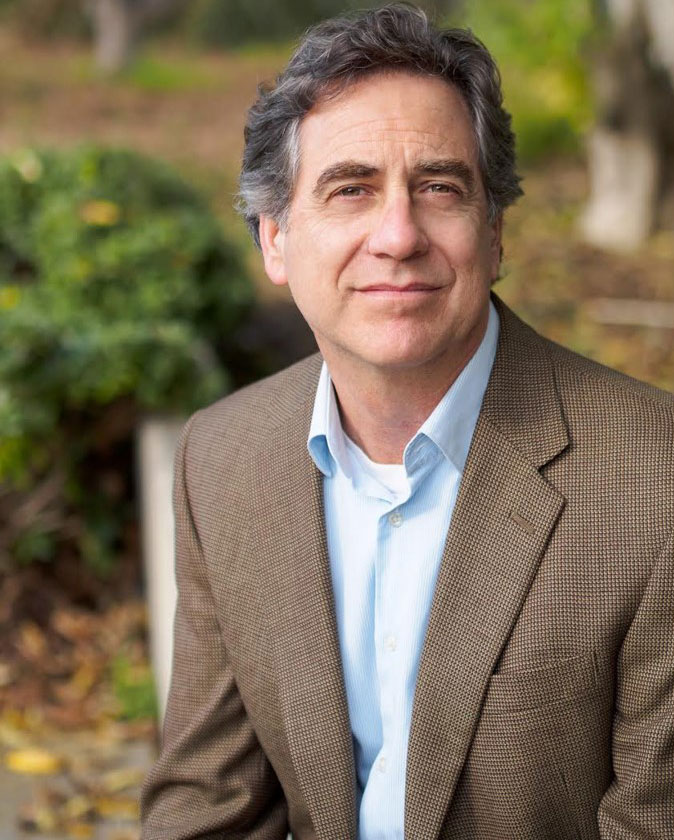 The UAB Department of Microbiology is pleased to welcome Daniel A. Portnoy, Ph.D., who will give a talk titled “Listeria monocytogenes: From basic mechanisms of pathogenesis to cancer immunotherapy” on November 7, 2017 at 3 p.m. in the Bevill Biomedical Research Building, Room 170. This will be the second in a series of bi-annual symposia held in memory of Susan Roberts Dubay, a former medical researcher in the UAB Department of Microbiology whose research efforts helped advance the scientific knowledge towards the development of an effective human immunodeficiency virus (HIV) vaccine. A reception catered by Tre Luna will follow in the BRBB lobby. Everyone is invited.
The UAB Department of Microbiology is pleased to welcome Daniel A. Portnoy, Ph.D., who will give a talk titled “Listeria monocytogenes: From basic mechanisms of pathogenesis to cancer immunotherapy” on November 7, 2017 at 3 p.m. in the Bevill Biomedical Research Building, Room 170. This will be the second in a series of bi-annual symposia held in memory of Susan Roberts Dubay, a former medical researcher in the UAB Department of Microbiology whose research efforts helped advance the scientific knowledge towards the development of an effective human immunodeficiency virus (HIV) vaccine. A reception catered by Tre Luna will follow in the BRBB lobby. Everyone is invited.
Portnoy received his undergraduate degree in bacteriology from UCLA in 1978 where his passion for microbiology was kindled. He next earned his Ph.D. in 1983 under the tutelage of Stanley Falkow at the University of Washington and Stanford. In the Falkow Lab, he worked on a conserved virulence plasmid in Yersinia enterocolitica, Y. pseudotuberculosis, and Y. pestis, and discovered what turned out to be the first effectors of type III secretion, though he incorrectly concluded that the “Yops” were outer-membrane proteins. To further his appreciation of host cells, he did his postdoctoral fellowship in the Zanvil Cohn Laboratory of Cellular Physiology and Immunology at the Rockefeller University in New York, working with Jay Unkeless and Jeff Ravetch. At Rockefeller he worked on macrophage Fc receptors and lysosomal proteases. During a two-year stint at Washington University in St. Louis, he began working on Listeria monocytogenes as a model intracellular pathogen. In 1988, he joined the Department of Microbiology at the University of Pennsylvania, where he collaborated with Lew Tilney in the Biology Department and made the observation that L. monocytogenes spreads from one cell to another by exploiting a host cell system of actin polymerization. His lab also defined the role of the listerial hemolysin in mediating dissolution of phagosomes. In collaboration with Phil Youngman, he showed that expression of the L. monocytogenes hemolysin by Bacillus subtilis led to its growth inside of host cells.
Portnoy collaborated with Yvonne Paterson, who also arrived at Penn in 1988, on the use of L. monocytogenes as a recombinant vector-based vaccine for the induction of cell-mediated immunity. Both Paterson and Portnoy went on to work with biotech companies to develop vaccines for both cancer and infectious disease applications. Numerous clinical trials based on their discoveries have shown promising results as immunotherapeutic treatments for cancer.
In 1997, Portnoy moved to UC Berkeley where he currently holds joint appointments in the Department of Molecular and Cell Biology and in the Division of Infectious Diseases and Vaccinology in the School of Public Health, and holds the Edward E. Penhoet Distinguished Chair in Global Public Health and Infectious Diseases. While his lab continues to examine basic aspects of molecular and cell biology, the lab focus has moved into both innate and acquired immunity. Portnoy and collaborators have shown that immune cells recognize c-di-AMP, a novel and essential bacterial signaling molecule, secreted by L. monocytogenes through multidrug resistance efflux transporters. Portnoy and Russell Vance identified that STING was the host receptor of cyclic-di-nucleotides (CDNs) leading to the production of type I interferon and other co-regulated genes. Modified CDNs are now being evaluated in the private sector for clinical application as adjuvants and for cancer immunotherapy. In 2013, Portnoy’s contributions were recognized by his election to the National Academy of Sciences.
